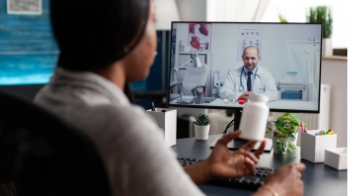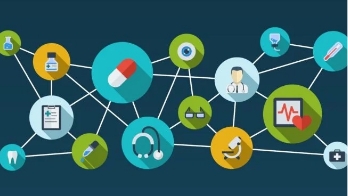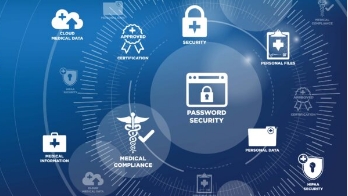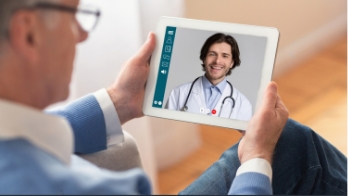
Transforming Healthcare leveraging Generative AI
Generative AI (Gen AI) rapidly transforms various industries, including healthcare. Generative AI solutions rely on deep learning algorithms to process massive amounts of unstructured/structured medical data and create new content such as audio, text, code, etc. These generative AI solutions can dramatically improve the quality of care, make it more affordable and accessible, and ensure equality in research and care delivery.
Read More
Transforming Healthcare with Computer Vision: Enhancing Compliance, Security, and Patient Care
In the ever-evolving landscape of healthcare, technology continues to play a pivotal role in shaping the industry's future. One such technological marvel, Computer Vision (CV), has emerged as a game-changer, offering unparalleled potential to revolutionize various facets of healthcare, including regulatory compliance, security, and patient care. In this blog, we delve into the profound impact of Computer Vision within healthcare, exploring its transformative influence on critical aspects.
Read More
The Impact of Telemedicine on Healthcare: Accessibility and Affordability
*/ /*-->*/ Telemedicine, also known as eHealth or mHealth, has become a prominent buzzword within the medical industry. This revolutionary innovation is transforming the healthcare landscape by seamlessly integrating AI to enhance the efficiency of medical care providers.
Read More
From Silos to Synergy: The Omnichannel paradigm in care delivery
Omnichannel healthcare is a holistic approach to patient engagement and healthcare delivery that aims to provide a seamless and integrated experience across various communication channels and touchpoints. Just as omnichannel strategies have transformed customer experiences in retail and other industries, they are now being applied to healthcare to enhance patient interactions, improve outcomes, and optimize operational efficiency.
Read More
Patient Scheduler: Empowering Healthcare Facilities with Intelligent Patient Management
In the ever-evolving healthcare landscape, ensuring seamless patient management has become a top priority for healthcare facilities like yours. Introducing the Patient Scheduler, an intelligent HIPAA-compliant solution built on a robust platform to transform patient appointment management and enhance patient experience.
Read More
Empowering Seamless Data Exchange in Healthcare – ACL FHIR Framework
*/ /*-->*/ FHIR (Fast Healthcare Interoperability Resources) is a standard designed to enhance interoperability and enable seamless data sharing among healthcare systems.
Read More
Empowering Healthcare with HIPAA-Compliant Cloud Options
In today's digital era, cloud technology has become indispensable to the healthcare industry. With its promise of flexibility, scalability, and accessibility, cloud services offer healthcare organizations an avenue to optimize their operations and enhance patient care. However, the need for strict compliance with regulatory standards must be considered when it comes to sensitive patient health information. This is where HIPAA-compliant cloud solutions step in to safeguard Protected Health Information (PHI) while leveraging the benefits of cloud computing.
Read More
Enhancing the Patient Experience with Virtual Consultations
In recent years, advancements in technology have revolutionized the healthcare industry. One such innovation that has gained significant prominence is virtual consultations. Virtual consultations allow patients to connect with healthcare professionals remotely, eliminating the need for in-person visits. It has not only improved accessibility and convenience but has also enhanced the overall patient experience.
Read More
Enhancing User Experience in Medical Devices: Pioneering the Path to Better Healthcare
User experience (UX) plays a critical role in the success and adoption of medical devices. As technology advances in the healthcare sector, it is essential to prioritize designing and developing medical devices that prioritize user-centric experiences. This blog delves into the significance of user experience in medical devices, exploring its impact on patient outcomes, healthcare provider efficiency, and overall satisfaction.
Read More
Leveraging Composable UX for Digital Health Platform Success
In the fast-paced digital health world, organizations continuously seek innovative approaches to enhance user experiences, improve efficiency, and meet evolving needs. Composable User Experience (UX) has emerged as a transformative design approach that allows organizations to break down complex digital experiences into modular components. By leveraging Composable UX principles, digital health platforms can achieve unprecedented personalization, scalability, integration, compliance, and collaboration.
Read More
Platform Design Considerations to Support IAM, Core System Integrations, IOT Data
As businesses grow and change, their platform design needs also evolve. They must integrate different systems and devices to create a unified ecosystem. This involves considering factors like Identity and Access Management (IAM), integrating core systems, handling IOT data, and more. This article will explore the essential platform design considerations for supporting IAM, core system integrations, IOT data, and other factors.
Read More
Challenges that healthcare organizations may face when implementing a digital enterprise platform
In recent years, healthcare organizations have embraced digital enterprise platforms to improve operations, enhance patient care, and reduce costs. However, implementing such platforms can be challenging due to various technical, organizational, and cultural factors. This blog will explore some challenges healthcare organizations may face when implementing a digital enterprise platform.
Read More




